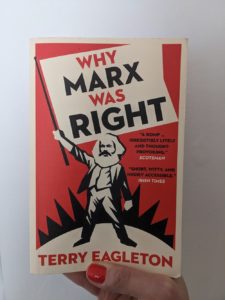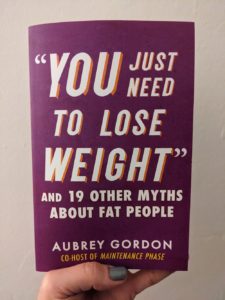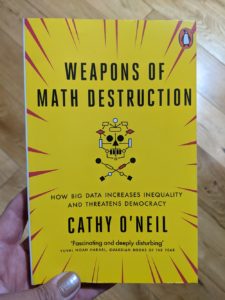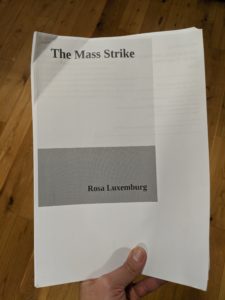Socialism 101 by Kathleen Sears
Written by Ashley Kelmore, Posted in Politics, Reviews
Best for:
People interested in learning about various thought leaders who might be related to socialism (but probably more likely communism?) throughout history, but not so much the practical applications behind their ideas.
In a nutshell:
This felt a bit like a History of Communism 101, as opposed to a primer on the different beliefs and implementations of socialist beliefs (which is what I was expecting).
Worth quoting:
N/A
Why I chose it:
I’m very clear that capitalism is not working. I’m also not comfortable subscribing to political or philosophical systems that I’m not well-versed in. I thought this might help me better understand the different schools of thoughts and practical applications of socialism.
What it left me feeling:
Vaguely annoyed
Review:
Obviously it’s an absolute challenge to try to fit information about a single political theory into a small 250-page book, but the cover description really doesn’t feel like it matches what’s on the inside.
The book roughly follows a time line, but it jumps around a lot. Sometimes it feels like it’s chronological description of various communist and socialist movements; other times it feels like it’s more a regional description. Most of the focus is on the people involved, from folks like Marx through to Bernie Sanders. I don’t know if the people and the actions those people are taking are socialist or not – or how they are viewed by other socialists. Sometimes Sears will say one faction disagree with another contemporary faction in one country, but that doesn’t really help me understand what the core tenets are. Or if there even are any!
There are like four pages devoted to Scandanavian-style socialism, but that’s the kind of stuff I’m interested in. People talk about how communism has always failed – has it? What are the examples and were these failures because of communism itself or because of the leaders choosing instead to be dictators? What are the specific policies that can be viewed as socialism? And why are we talking about Margaret Thatcher?
I think what Sears was trying to do was cover everything, when what I was looking for was much more focused: a description of socialism and what that looks like in practice. There are a couple of pages at the start, but then it turns into a history book that jumps all around space and time. In looking up the author while writing this review, I see that she has written many ‘101’ books, so I think that explains it. Socialism is just another book she’s researched and written for this series of books; I think readers interested in the topic should instead seek out people who either are socialists or have extensively studied the topic.
Recommend to a Friend / Keep / Donate it / Toss it:
Donate it









